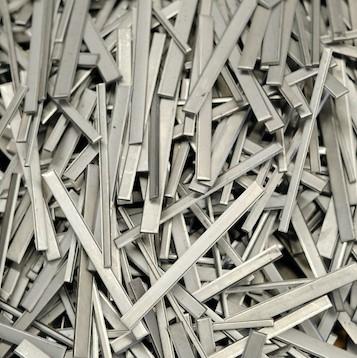Despite their exceptional properties and qualities, applications for titanium alloys are still largely restricted to sectors where there is either not enough economical substitutions available, or their expensive material costs are only second to performance. In the case of nickel titanium alloy, for instance, it perfectly exemplifies this concern in the field of military, sporting goods, and aerospace. Even though there have been great efforts developed to replace the inefficiencies and reduce the high cost of producing titanium, there needs to be still more effective production options.
Thankfully, the recirculation of this metal and its alloys had been hugely focused on selected scraps such as nickel titanium alloy.
During this process, the contaminated alloy scrap is usually downgraded. As a result, the utilized scrap fraction that was recovered during the recycling process is made into a new cost-effective secondary titanium alloy. Depending on the specific recycling facility and technology used, the processing of scrap metal such as nickel titanium undergoes various steps. It can start from scrap pre-treatment, then followed by vacuum induction melting, deoxidizing, and further refining using different processes and technologies.
Given the broad range of the contained elements in more complex scrap mixtures like nickel titanium alloy, strong diluting with the use of titanium sponge or subsequent alloy scrap might be required to satisfy the particular alloy specifications. However, this option may compromise the efforts of minimizing the costs associated with producing titanium alloys. In this case, a more comprehensive alloy specification would be necessary to ensure that the process will be opened to mass applications for the desired secondary titanium alloy. This is why we always make sure that the recycling process and technology we use are always at par with the required alloy specifications.
If your business is looking for a knowledgeable partner to supply speciality alloy, Alnor Industries has decades of experience serving a variety of industries. Contact us today to learn about the full range of materials we manufacture and recycle.



